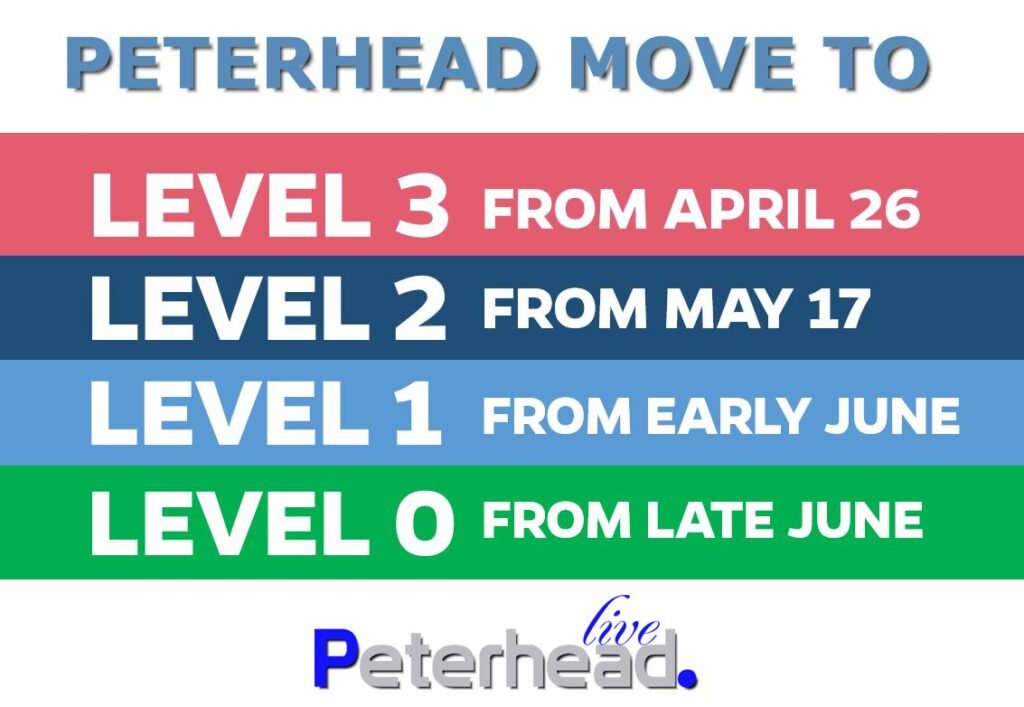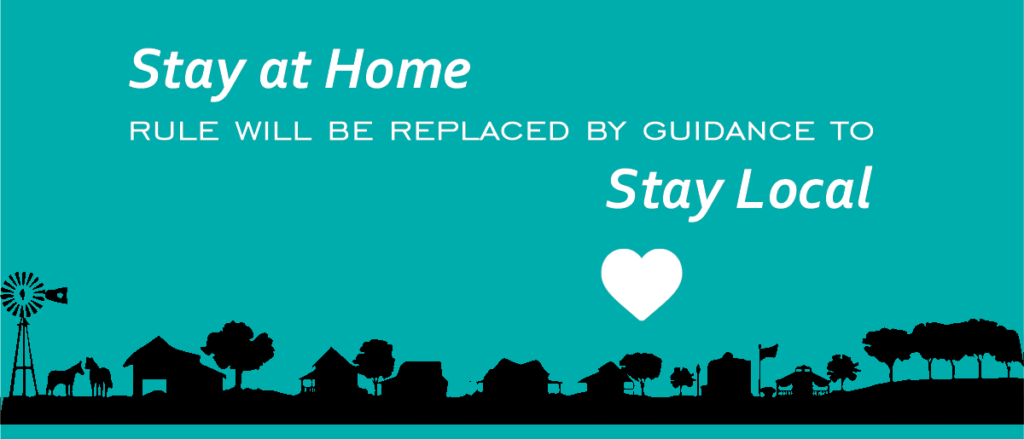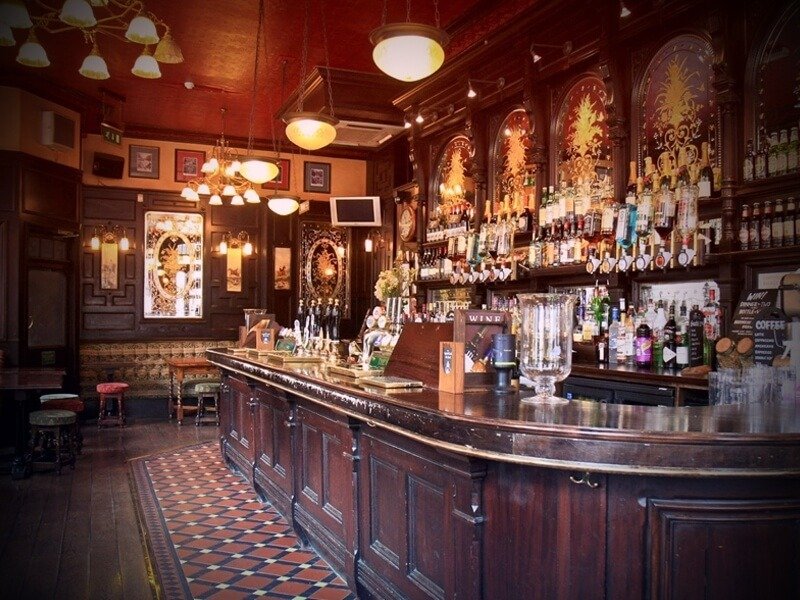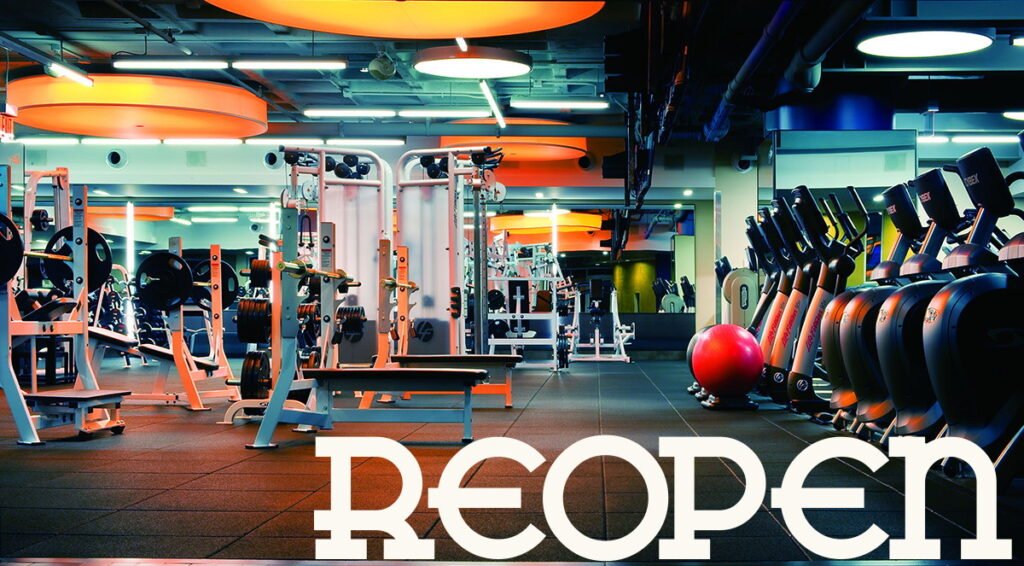Out of lockdown, next step from 17 May
Out of lockdown – the new rules, which come into effect on Monday 17 May
People will be able to hug their loved ones and meet in private homes as most of mainland Scotland moves to Level 2, Out of lockdown, with eased restrictions on hospitality, entertainment, education and sport.
In an acceleration of previous plans, the number of people and households that can meet inside homes in Level 2 has been increased to six people from three households.
The new rules, which come into effect on Monday 17 May, Out of lockdown, will apply to all mainland local authority areas with the exception of Moray, which is experiencing a high and increasing number of Coronavirus (COVID-19) cases. As a result Moray is likely to remain in Level 3 for a further period, with travel in and out of the area prohibited other than for permitted purposes. A final decision on this will be made at the end of this week.
As the virus is now sufficiently under control in the Western Isles, Orkney, Shetland and remote Highland and Argyll islands, these communities are expected to move straight to Level 1.
From 17 May, anyone entering Scotland from countries on a new international travel ‘Green List’ will not be required to quarantine on arrival, but will have to take a PCR test for COVID-19. The Green List will initially be the same as that in place for England but will be subject to review based on Scotland’s specific needs.
Under Level 2 restrictions:
- Out of lockdown – up to six people from three households will be able to meet in each other’s homes or gardens without physical distancing – this was the limit previously planned for Level 1 but has now been accelerated for areas in Level 2. People will be encouraged to use their judgment about close physical contact with others
- Out of lockdown – up to six people from three households will be able to meet indoors in places such as pubs, cafes and restaurants, while up to eight people from eight households will be able to meet outdoors
- Out of lockdown – pubs and restaurants will be able to serve alcohol indoors until 10:30pm in two-hour booked slots
- Out of lockdown – venues including cinemas, theatres, concert halls, music venues, comedy clubs, amusement arcades, casinos, snooker halls and bingo halls will be able to reopen
- Out of lockdown – events will resume with a maximum capacity of 100 people indoors, 250 outdoors where there is unrestricted standing and 500 for events with seating. Organisers will be allowed to apply to hold bigger events
- Out of lockdown – outdoor contact sports and indoor group exercise classes will be able to restart
- Out of lockdown – more than one person will be able to sing during religious services
- Out of lockdown – amateur performing arts groups will be able to perform outdoors
- Out of lockdown – colleges and universities will have more flexibility to resume in-person learning
First Minister Nicola Sturgeon said:
“The success of the vaccination programme, and continued high compliance with the various rules and restrictions, means that we have seen continued suppression of the virus in the last three weeks. As a result the situation overall is a very positive one, and we are now in a position to relax more restrictions and restore much more normality to our everyday lives.
“I know just how unwelcome the likelihood of a further period in Level 3 must be to people in Moray, and we are doing everything possible to ensure that any extension of Level 3 is for as short a period as possible. I would appeal to everyone living in the region to follow all the public health advice so that we can get the situation back under control and allow Moray to get back on a positive track just as quickly as possible.
“It is almost eight months since most of us have been able to meet in each other’s homes. While I know all of us have been looking forward to being able to do that again, I would encourage everyone to please use judgement – close physical contact still carries risk, so if you have loved ones who are vulnerable for any reason, you should still be careful. And you should perhaps limit the overall number of people that you choose to have close physical contact with.
“We still intend to be highly cautious on international travel, given the risk of new variants, but we consider that the situation now allows us to begin a careful move away from blanket restrictions on non-essential travel. Everyone should think seriously about whether they really need to travel abroad this summer. I know for many people international travel is about family connections. But when it comes to holidays abroad, my advice continues to be to err on the side of caution and to staycation this summer.”
Background
Coronavirus (COVID-19) protection levels: what you can do
Level 1 restrictions will apply from Monday in:
- the Western Isles, Shetland and Orkney
- all islands in Highland, except for Skye given its fixed link with the mainland
- the Inner Hebrides islands in Argyll, including Islay, Jura and Mull
Countries on the green list are:
- Australia
- Brunei
- Falkland Islands
- Faroe Islands
- Gibraltar
- Iceland
- Israel
- New Zealand
- Portugal
- Saint Helena, Ascension and Tristan da Cunha
- Singapore
- South Georgia and the South Sandwich Islands
If you enter Scotland from a red list country – one of the countries identified as acute-risk under our current regulations – you will be required to enter a managed isolation hotel and stay there for 10 days. Due to changes coming into force from tomorrow, those countries will include Turkey, the Maldives and Nepal.
If you arrive from a country on the amber list – which will be the majority of countries – you must self-isolate at home for 10 days, and take two PCR tests during this period.
A new app – Check in Scotland – was launched at the end of April, to help Test and Protect easily contact people who need to self isolate. Please download and use the app if you can.







